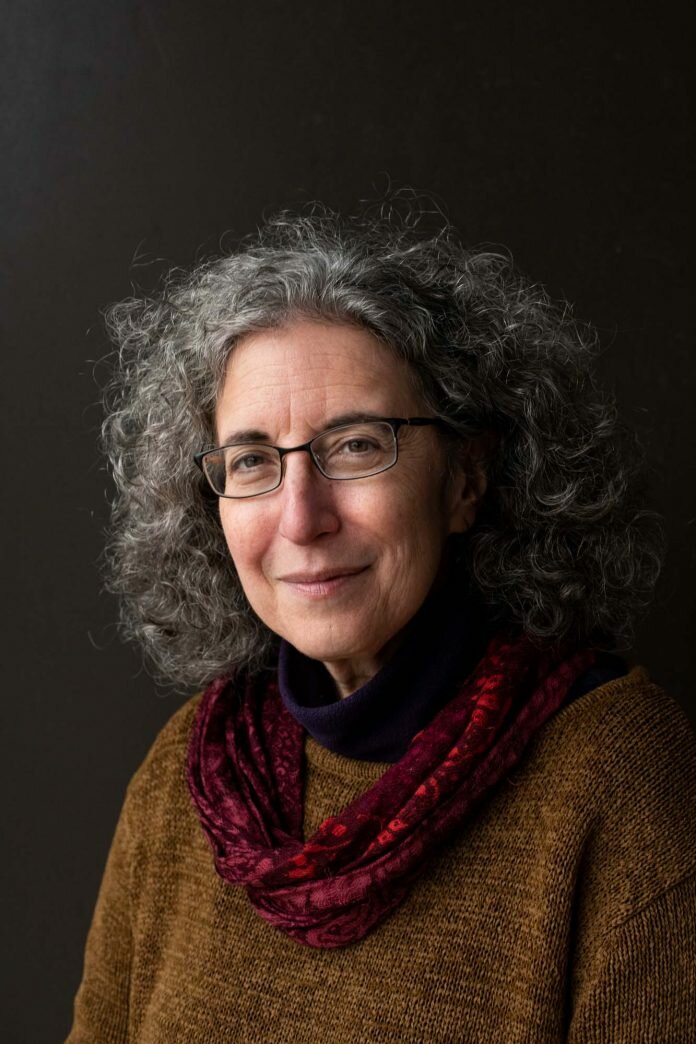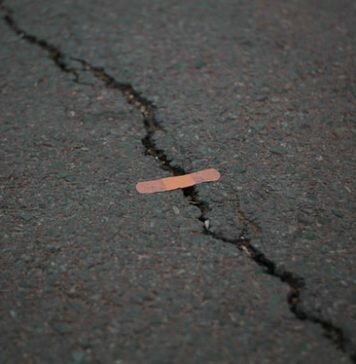In her new book, a longlist contender for this year’s National Book Award in nonfiction, Michelle Bowdler explains how a violent home invasion and sexual assault led her to investigate the lack of investigation into sex crimes.
Michelle Bowdler was living in Boston, Mass., in her mid ’20s in 1984, when she was violently attacked by two men who broke into her apartment. They tied her up and raped her repeatedly. Afterward, Bowdler does what so many victims of sexual assault by a stranger do: She called the police. A rape kit was performed at a nearby hospital, she was cared for by friends, her apartment was dusted for fingerprints, and she was interviewed by the police. She went along with everything that was asked of her following the rapes. Yet, in return, she received very little.
The police officers assigned to her case quickly moved on to something else while Bowdler believed—understandably— that the crimes against her were being thoroughly investigated and the rapists would be found and taken off the streets at any given moment before they could hurt anyone else. But this wasn’t like the TV crime shows where such justice is provided, Bowdler soon realized. And the misogynistic, patriarchal system in place did not—and does not—treat rape as the serious crime that it is.
For four years, she endured crippling PTSD, which reduced her ability to do any meaningful work, a frequent occurrence for victims of sex crimes. Bowdler notes, “The inability to function at work is a common reaction among those who have experienced rape and sexual assault.” But ultimately, Bowdler was able to find meaning and happiness in her life with a fulfilling career in public health, marriage and parenthood. But the unanswered questions of what happened to her and the appalling state of affairs still happening nearly three decades later drove Bowdler to do a deep-dive into what she calls “the systemic misogyny that has allowed rape to be treated like it doesn’t matter, isn’t real, and doesn’t deserve equal treatment uder the law.”
Bowdler’s book is a brilliant call to action for anyone who reads her memoir, investigation and manifesto, which addresses the myriad concerns with the judicial system, including how and why sexual assault is not treated as serious of a crime as other felonies, the backlog of rape kits in this country, and how society turns its back on sexual assault and rape victims for its own comfort, which only leads to more sexual assault and rape.
To achieve this, Bowdler must first explore what happened to her in 1984, as well as the aftermath of both her healing and the reckoning with the investigation into why her case wasn’t further investigated the way it should have been. Many memoirists might stop there. But the 2017 Barbara Deming Memorial Award recipient felt called to explore and educate on what she calls “the societal tolerance of violence against women[,] the complacency for data that shows rape is investigated and prosecuted at shockingly low rates and results in almost no convictions, even when cases do go to trial[,] the absence of awareness that rape evidence sat for decades untouched in cities around the country until a massive effort to uncover this neglect led to some reforms[,] politicians who minimaze rape[,] entire industries where sexual harassment and assault were hidden secrets and perpetrators’ careers thrived.”
When did the idea come to you to write “Is Rape a Crime?”
It’s been a long process. The book started over a decade ago when I just wanted to find a way back to writing. I started with short stories about my family to practice character and story building. Over time, it became a memoir about the impact of rape and how advocacy helped me find a way forward. I took a yearlong memoir class about four years ago and that was what really changed my writing life to a more disciplined effort to incorporate writing back into my life—something I lost after the assault in my mid-twenties. The final version where extensive research was incorporated was done in the final year of the book to frame the experience as a social justice issue and assert strongly that the way sex crimes are addressed needed to change.
We often see authors either write a memoir or a journalistic-style analysis of a pervasive issue, which in your book is society’s failure to protect victims of sexual violence. Is “Is Rape a Crime?” masterfully does both. What prompted you to intertwine the two?
This was a decision made by me and my editor at Flatiron Books when we decided to work together in publishing the book. The book had some research in it when it sold, but we had a conversation about how I wrote the book to create change, and that so much of what drove me to that was what I learned as I researched “backlogged” rape evidence and the thousands of untested DNA samples in the Massachusetts state crime lab.
The title stopped me in my tracks the first time I saw it, and I admittedly got a little heated. For me, as a fellow sexual assault survivor of repeated rapes, I thought, “Of course it’s a crime!” But as I read your book, I immediately understood your title choice. Can you share with our readers why you chose your provocative title?
The title is not meant to upset anyone or be dismissive or the experience of rape and sexual assault but the exact opposite. The truth is that while we seem to accept that rape is one of the most horrible violations that can happen to a human being, it is treated as anything but by our criminal justice system and society at large. Saying rape is horrific but passively acquiescing to the injustice of how these crimes are addressed and have been addressed through decades needs to change. What people also learn as they read the book is that this was a real question asked of me by a survivor who had been the victim of a serial rapist; her case not investigated for years. It’s really beyond a travesty when a reported felony rape is simply ignored and this happens more than one might ever expect. I can promise you that the anger people feel when they finish the book will not be with its title but why this state of affairs has been allowed to exist for so long.
“Is Rape a Crime?” delves into your own rapes and the aftermath of that night. How hard was it returning to those scenes to share those details as a writer?
It was hard but manageable. I made very intentional decisions about what I would include in the book and why. It seemed absolutely necessary to tell some details of my experience and the post-traumatic stress I felt for years in order to effectively juxtapose it with the outrage of its minimization by the Boston Police.
In “Is Rape a Crime?” you talk about how your mother was informed by a rape crisis hotline to not come to visit you after you’d been raped unless you specifically asked her to. Can you talk a little about that and what you wishe rape crisis hotlines would instruct families to do?
This happened a long time ago so it’s very likely some things have changed. I think their advice about giving agency and control to a victim of rape was accurate, but they could have gone beyond that—suggesting a check in after a week or two later after time had passed instead of just responding to the crisis moment. What a rape victim feels moment to moment can and does change and not being afraid to ask how you can be helpful is important, and then asking that same question again as time passes. Also, it’s very useful to remind close friends and family to make sure they are taking care of themselves so that they can help their loved ones effectively.
Mary, your wife, was so supportive, gently allowing you to share your story as you felt able, saying that she wouldn’t break, and remaining so vigilantly supportive. I admired her for that. What is that like having that kind of support in your most personal relationship?
I feel so blessed to have found Mary; she is in the mental health field now and deals with many people who have experienced trauma, and also has experienced her share of loss in her own life. The fact that our relationship is strong was also important to show in the book. Love, joy and optimism can also be a huge part of one’s life, even after horrific trauma. I have a life; it has meaning; it is rich and full and I am happy.
You joined a rape support group after you were raped. How important was that for you?
At the time, I did everything I was told in an effort to feel better. It was important that the group provided structure, a place to feel heard and less alone. At the time, I was skeptical it would help but it’s clear now that it served an important function in my life and I was glad I did it.
How did you practice self-care while writing “Is Rape a Crime?”
I didn’t write the book until I was ready to and I think that helped a lot. I also had a great writing group and we approach our writing as writing, working to make what is on the page most effective. It didn’t feel like I was trying to express and re-process trauma, it felt like I was trying to tell a story I thought was important for people to read. Having said that, I took breaks when needed, paid attention to my exhaustion level, and made sure I had time for my family and friends.
Where are we now in 2020? Is rape treated more like a crime? Are rape kits being tested and investigations followed up on more now?
While the story I tell occurred many years ago, the data I use about rape and sexual assault reporting is current. We still have a lot of work left to do. Like I say in the Manifesto section of my book, rape laws and our response as a society is often judged by whether things are slightly less terrible than they used to be. While some cities have made progress or some cities do better with training officers than others, the general issues all still exist and must be addressed.
In many cases, including my own, survivors don’t go to the police right away or the hospital even, which means no rape kits are performed. How can we get any justice for what was done to us if there’s no evidence at all beyond our telling of the events?
People do not report for very important and valid reasons. Justice is a term that means different things for different people and for so many, issues may not occur to our satisfaction in our lifetimes. But we can speak up about issues that impact us, that matter and work toward change. Sometimes working for a larger change can help individuals feel that they have gotten modicum of justice through their efforts. It’s not something that has an easy answer because all too often, we are left to reckon with not getting the “justice” we seek and deserve.
You recently told a reporter for the Guardian that you “abhor the word ‘survivor’” because it implies that there is an end to it. If you are labeled a survivor, it seems that for you there’s an implied resolution, that it’s over. But you call yourself a survivor in the book and address the survivors of rape toward the end of the book. Can you expand on that?
I use both terms interchangeably in my book; I just prefer the term victim and don’t like when others label me as a survivor if they haven’t asked me what I use. And I would never say that anyone else isn’t entitled to their own terms. My concern with the word “survivor” is when people use it to laud someone as a hero when they know nothing about them or what they are contending with. It allows people to look away, healing and closure assumed with no need to address the structural issues around how sex crimes victims are treated by law enforcement and our larger world.
What advice do you have for sexual assault survivors attempting to put their own story into written words? And then to go further and actually publish them for the world to read?
Writing takes time and while it can be a solitary activity, doing it with structure and colleagues helped me tremendously. My writing progressed with classes, deadlines and learning about the craft. Also, one of the keys to good writing is reading. There may be shared experiences in the world, but how they are told are so different. Publishing is a whole different process from writing and I’m not sure I have a short answer for that. It took me years, and during that time I wrote and submitted essays, went to residencies and tried to improve my writing by staying in a writing group. There is not just one journey to publication. My advice would be patience with oneself and not give up.
IS RAPE A CRIME
A Memoir, an Investigation, and a Manifesto
By Michelle Bowdler
Flatiron Books. $27.99.
Purchase on Bookshop (which supports independent bookstores and Survivor Lit) or anywhere books are sold.
Author photo by Alonso Nichols







![[Blood] Sodden Anguish/Deathbed Red (Fall 2017 Mood Board)](/wp-content/uploads/2021/07/Cosmic-Blood-Wash-Final-Ami-J.-Sanghvi-300-DPI-218x150.jpg)




